Everything You Ever Wanted to Know About My Digital Nomad Life (2017 Edition)
When you’re living a wildly unconventional lifestyle (like, you know, traveling the world full-time for five years with your dog and your freelance business), people have a lot of questions. Which is why last year I did a massive roundup post with all the questions I normally get about my lifestyle, my business, and my travel habits.
Since it’s been a year, I thought it seemed like time to update that massive Q&A, updating old questions and tackling new ones along the way.
It’s long, so feel free to use the navigation below to jump to sections that interest you or just skim the lengthy post to find what you’re looking for.
And keep in mind that these are my personal experiences and probably don’t reflect anybody else’s. Digital nomads are as diverse as any other group of people. Some travel in luxury. Some stay in hostels. Some make a mid-level income, others scrape by, still others have trust funds. We’re a very diverse group.
Now, questions. Here we go, sports fans…
Jump to questions about: Getting Started / Finances / Working from the Road / Solo Female Travel / Travel & Safety / General Travel & Planning / Sanity, Love, & Relationships / Health & Mental Health / Packing / Blogging & Travel Writing / Other
GETTING STARTED Q&A
What did you do with all your stuff?
I sold it, gave it away, trashed it, or donated it as appropriate. And I still own a couple boxes (mostly of old tax forms and receipts and paperwork) in the basements of friends and family members.
Do you ever miss your stuff?
Not really. Occasionally I wish I could carry a few more things (more paperback books, for example, or boots and flats at the same time), but c’est la vie. I have limited space and so I have to be careful with it and if that’s the biggest sacrifice I have to make for this lifestyle, I’m okay with it.

Do you have any hobbies that require you to carry extra stuff? If so, what and how do you manage?
For about six months, I traveled with a restored vintage Swiss army bike. I bought it for cycling across France, but also used it to cycle within Switzerland, through the Slovenian countryside, across about half of Belgium (south to north), and in Amsterdam for one terrifying day.
After those six months, I sold the bike in Amsterdam and left for the US without it. I did this because transporting it was, honestly, less than fun. The trains I took (in Switzerland and Austria) have special cycle cars usually at the very end of the train, which means when you’re switching trains not only do you have to lug the extra weight of the bike, but you often have to walk (read: run) the entire length of two trains in order to make your connection. The other issue is that the Austrian trains had elevated bike cars, so to get my cycle into the train required lifting it over my head. Luckily, I never actually had to do this, as a variety of well-dressed European men came to my rescue at every stop, but if I had to do it on my own, it would have been a challenge. Because while I can certainly lift and carry my bike, raising it over my head is another story.
Additionally, the cost of transporting the bike on so many flights (Amsterdam to Pennsylvania, Pennsylvania to Colorado, Colorado to Colombia) made it less than worthwhile. It made a lot more sense to sell it and consider re-purchasing a bike once I was in the next place for awhile.
Eventually, I decided that I did still want a bike, but that my best option for travel would be to invest in a folding bicycle. Now I travel with a Brompton folding bike in a large canvas bag.
Other than that, my biggest hobbies are hiking and reading, both of which require minimal gear.
That said, I do have friends who travel with a lot more gear than I do (paragliders, BASE jumping gear, etc.) and somehow manage it successfully, so it’s definitely possible.
What travel planning tools do you use?
I use Rome2Rio all the time to figure out my transportation options, distances, and routes (it’s a site that gives you distances, times, routes, and estimates for traveling from point A to point B by train, car, taxi, plane, bus, or ride share).
I love Adioso for its open search function, which lets me find the cheapest tickets and best flights to multiple destinations and dates at the same time (e.g. you can search for flights from New York to anywhere in Europe for the month of October and pinpoint the cheapest flight date in an entire month).
I use Flickr to figure out where I want to go, since being in beautiful places is the most important thing to me.
I use a variety of blogs for inspiration.
I use Airbnb to find affordable monthly rentals.
I use Couchsurfing to connect with locals to ask for advice and/or meet up. (I don’t use it for places to stay, though.)
I use Google Maps for directions.
And I usually buy train tickets directly through the train company websites (or if I have time, in person at the station).

What do you do about mail?
Almost everything I have is set up to be paperless (credit cards; bank statements), so my mail needs are pretty small. When I do need to include an address or receive paper mail, I mostly use my best friend’s address and she’s kind enough to let me know if something important comes in.
Other nomads I know, including the boyfriend, use mail services that receive your mail and scan and send to you by email or shred at your request. This is the one Chad uses.
As for things I need to receive myself, I usually stay long enough in one place to have packages and important stuff (like book proof copies) mailed directly to me or to a friend in a city I’m about to visit.
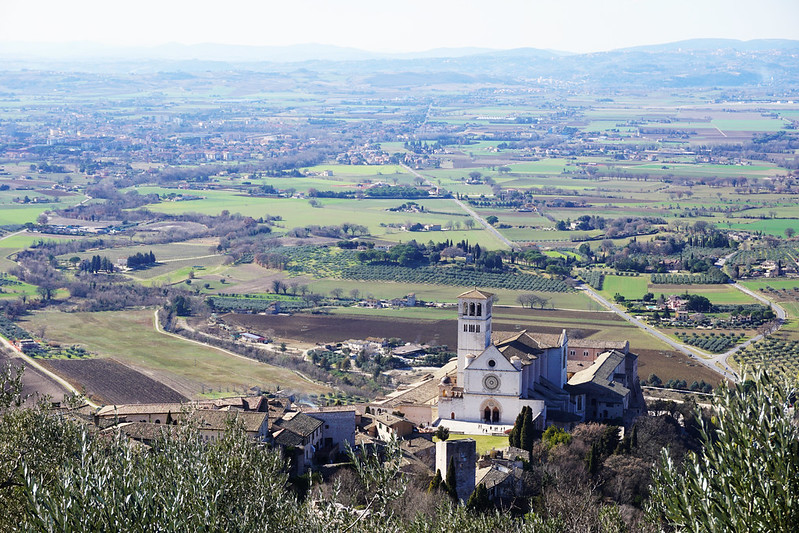
What about cell phone service?
I gave up my cell phone after a few months of travel, choosing to use a Skype number instead, which allows me to receive phone calls to a US number no matter where I am in the world for just a few bucks a month.
This means whenever I have internet and am near my computer, I have a phone. When I’m out and about, I don’t. Which I love. It forces me to be in the moment and if I ever genuinely need a phone, borrowing one is easy since everyone else has them.
How did you get the guts to go?
I’m always a little surprised when people think I’m so gutsy. I’m really not. I was wildly unhappy when I was in Denver, struggling with my depression in a big way, and even though I was afraid to make the leap to full-time travel, I was more afraid to stay put. Going felt like saving my own life. And so I went.
But if you’re asking this question, you’re probably asking for advice. And my story won’t apply to most people. So my advice is this: always remember that you have an exit. Even if you leave with the intention of traveling indefinitely or for a year or for six months, you can still turn around and come home. You can always go back.
Leaving is much less scary when you realize it isn’t a permanent decision. It’s not all-or-nothing. It’s not pass-fail.
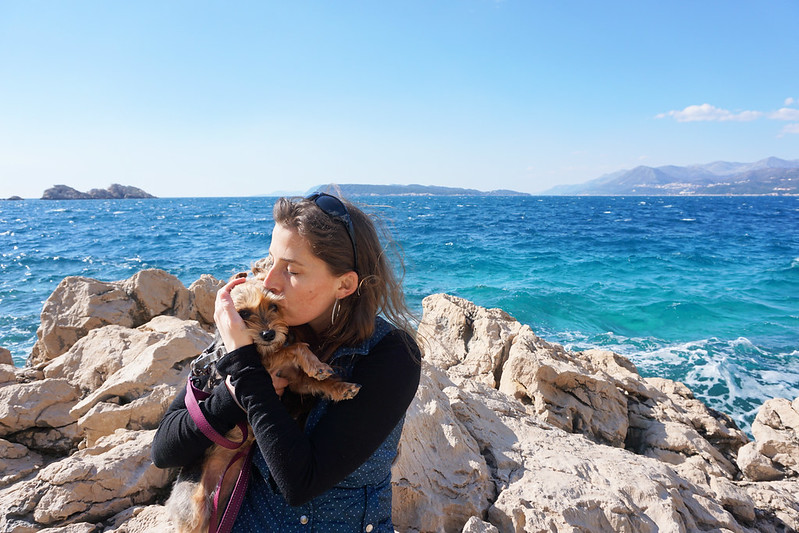
What was your financial and personal situation like when you left?
I didn’t leave to travel full-time until I had already been freelancing for a year (and things were going well enough that I felt reasonably confident that I would be able to continue making a stable-ish income), I had 12+ months worth of expenses in the bank (in case of emergencies, slow months, etc.; for me, living on a budget of $2k per month, that’s $24,000+), and I was able to get out of my home lease without financial penalties.
The only debt I had when I left was about $7,000 owed on my car. I had enough in the bank to pay it off, but the interest was so low that I’d decided I would rather have access to that money than pay the car off immediately. For my first four months on the road, I let a friend drive my car in exchange for her keeping up the insurance and upkeep while I was away. After four months, I decided I loved being on the road and that it was working for me financially, so I returned to the US, paid the car off, sold it (it was worth about $12,000, if I’m remembering correctly, so that was nice), and left for the second time, this time with no debt at all.
It’s also important to note that I was not in a financial situation where I could take a bunch of time off. I was (and still am) in a position where I need to work for a living. I don’t have a trust fund or family money, but I was lucky enough to pick a career (writing and content strategy) that can easily be done from anywhere, as long as I have a good internet connection.
This combination of no family money + a career I can travel with meant that while I could travel full time, I also always had to work. And since I was new to freelancing, with just a year of full-time freelancing and a couple years of on-the-side freelancing under my belt, those first three-ish years on the road, I worked a lot.
Now that I’m a bit farther along in my career and have been freelancing for 6+ years and doing content work for 15, I can afford to work a bit less, but back then I was full-time, if not overworked. So when you picture my first years on the road, picture them as mostly normal workdays, sitting in an apartment or a cafe (though mostly apartments, as cafes can get expensive) working 8 – 10 hour days and spending one or two days a week and sometimes evenings or an afternoon exploring, making new friends, etc. The draw of full-time travel, for me, was, at least in part, that I could live my normal life, building my business/freelance work, but instead of spending every weekend and day off in the same place, I could constantly be somewhere new.
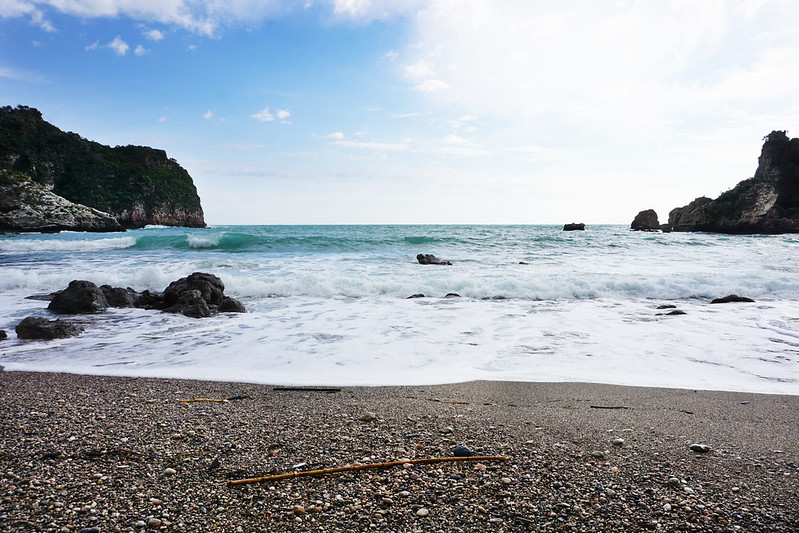
What about visas?
Right now Luna, Chad, and I are mostly traveling in countries where we don’t need a visa. And in the case of Switzerland, getting a long-stay visa was a lengthy but straightforward process. I think it’s likely that next year we’ll be going through another long-stay visa process, but we’re not sure where yet.
How has traveling changed you?
Even though I still struggle with those delightful old demons depression and anxiety, overall I’m happier. I’ve also learned to love myself, dropped two dress sizes, and realized my dream of becoming a travel writer and book author. I also met my partner and found the inspiration for my first novel on the road.
And that’s just in the last five years. Before that, travel was an integral part of widening my perspective on the world and creating greater compassion and humility in my life.
Did you find what you were looking for? And what happens after that?
What a loaded question. Perhaps some people go looking for some massive soul-level change, but I was just looking for newness, creative inspiration, and forward motion. I wanted freedom. I wanted permission to do something different with my life. I wanted something to shake me up, to move me out of my more traditional life. So, yes, I found it.
And what happens after that? I keep going. I wasn’t looking for the answer to a question…something with an end-date. I was looking for a new story. A new way to live.

FINANCES Q&A
How do you make money while traveling?
I am a writer, content strategist, and sometimes-website consultant, making my living on my 100 Locals guidebooks, magazine writing, content/copywriting for brands/agencies, content strategy, and a little bit of website consulting and coding. I also make a tiny bit of money from affiliate sales and donations (thank you!) here on the blog.
For a more in-depth look at my business, check out this lengthy post.
How do you afford to travel like this…I mean, isn’t travel expensive?
Actually, travel doesn’t have to be that expensive. Staying longer, living as the locals do, and getting rid of your expenses back home can mean very cheap living indeed.
So, let’s unpack that:
Staying longer: Monthly rates in furnished rentals are far cheaper than their nightly or weekly counterpoints. A studio in Paris on Airbnb might cost $80 per night, but only just over $1,000 for the whole month. And if you’re going in the off-season and ask for a discount, you can probably get it even cheaper.
Staying longer also means less big transportation bills and more time to explore. And more time to explore means you actually spend less money. Why, you ask? Because if you’re in Paris for a month and you want to see the Louvre, go up the Eiffel Tower, eat at seven restaurants that were recommended to you, and take a day trip to Verseilles, you spend the same amount as if you try to do all that in four days. But the person who has four days then moves onto another place where they’re spending money on their next 10 must-sees. You, on the other hand, are spreading out your Paris must-sees and spending time in between enjoying all the gorgeous free things the city has to offer as well…the parks, the streetscapes, and so on.
Living as the locals do: Staying in apartments, shopping at the local markets, cooking at home, buying a monthly bus pass instead of a day pass…all these things save you money. And over time that money adds up.
Getting rid of expenses back home: If you have a car payment, rent/mortgage, cell phone bill, cable TV bill, health insurance, car insurance, and condo fee back home every month in addition to your travel expenses, of course traveling is going to feel expensive. You’re paying double.
That’s one of the reasons being a digital nomad is often more affordable than staying put. You’re ditching those ongoing home expenses along the way. Not to mention that you don’t have much room in your bag, so you won’t be shopping half as much as you did at home. Instead, you find yourself with a small manageable set of expenses all connected to the city you are living in at that moment.
With all that in mind, my lifestyle is actually very affordable (except when I’m hanging out in Switzerland, but even that’s not as bad as you think). I generally try to spend less than $2,000 per month on living expenses (not including a few variable things like business expenses). This year so far, I’ve come in way under budget, spending about $1,500 per month on day-to-day living expenses.
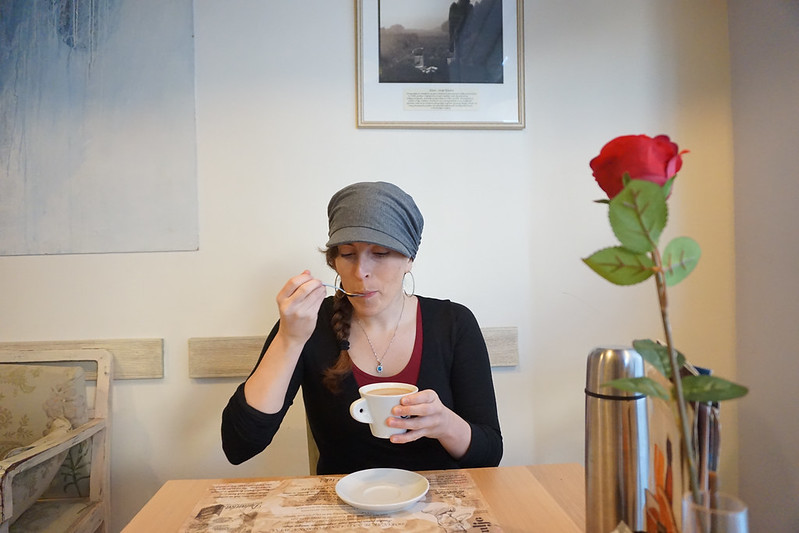
What’s your monthly budget?
As I mentioned above, I try to keep my monthly living expenses under $2,000 and currently I’m hitting about $1,500 here in Eastern Europe. (Here’s how.)
What does that monthly budget cover? Are you living in hostels? What kind of lifestyle do you sustain?
I am a solidly middle-of-the-road traveler when it comes to budget. I’m too cranky, introverted, and particular to live in hostels or super-budget accommodations and while I do occasionally enjoy a luxury suite, I wouldn’t want to live in them full-time. Which means you’ll normally find me renting a comfortable, budget-friendly apartment in a local neighborhood via Airbnb for a month or two or three at a time.
Food-wise, I love cooking, so most of my budget goes into grocery stores and markets, butchers and bakers. Occasionally, I eat out (maybe about once a week). Eating healthily, well, and tastily is a priority for me, so this budget line item is one of the largest in my monthly budget.
I’m not a big museum-goer and I rarely pay to go into castles or wander through tourist attractions. Instead, you’ll find me mostly hiking and exploring new places on foot, trying the local cuisine, riding my bike, etc. When I do spend money on entertainment or activities, they are mostly things like spa days, high tea, food tours, or outdoor activities.
As a travel blogger, don’t you get lots of stuff free? How does that impact your budget?
While most of my travels are paid for by me (including my day-to-day living expenses), I do sometimes get free or discounted things. Mostly, this includes the occasional free hotel or B&B room or discounted Airbnb stay, occasional free products to try and review (like my hiking backpack and Luna’s carrier), and even more occasional free passes to activities (like our passes to walk the Dubrovnik city walls).
For the most part, the freebies are fairly rare and don’t have a very big impact on my budget, mostly because if I couldn’t afford the activities, rooms, etc. I get free, I’d just replace them with cheaper or free activities, places to stay, etc. If I couldn’t get a free spa day in Dubrovnik, for instance, I’d either pay for one (perhaps at a slightly less fancy spa) or go to the salon for a $20 head massage and hairstyle.
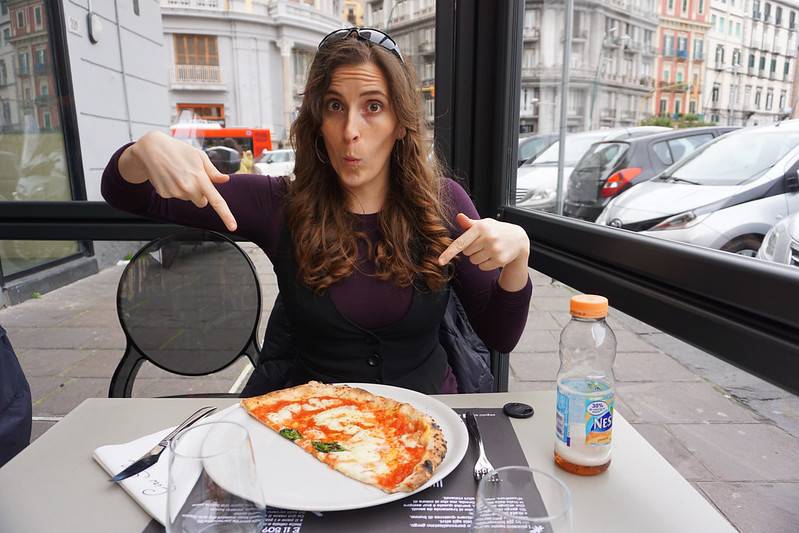
What’s your safety net? What would you do if you suddenly couldn’t work remotely?
When I left to travel, I had enough money to live for a year with no income. Today, I could probably go two-plus years, so if everything imploded tomorrow, I’d be stressed as all get out, but not destitute.
If I suddenly couldn’t work remotely for some reason, I would attempt to get a visa for somewhere in Europe and base myself there. If I had to get a full-time job, I’d look for something with a lot of vacation time, probably working in content strategy with a writing component.
Of course, this hypothetical question is a very very unlikely one. My income comes from about five to ten different sources at any given time, which means it’s very unlikely that they’d all dry up at once. Even if one client no longer has work for me, I still have the other sources while I look for a new client. This is one of the good things about freelancing: my livelihood is not dependent on a single employer.

Where do you pay taxes?
For the most part (though rules vary by country), you are expected to pay taxes where you reside. When I lived in the US, I paid taxes in the US. For the two years that I was a Swiss resident, I paid taxes in Switzerland. The rules vary a bit by country, so if you’re going nomadic yourself, definitely consult with a tax professional.
How much money should someone have in the bank before embarking on this kind of journey?
That depends very much on how you’re traveling (are you working on the road? Traveling slowly? Taking a year off?), where you’re traveling (Asia is obviously cheaper than Europe), and how much you’re earning.
If you want a sustainable full-time travel lifestyle, the trick is just to earn more than you spend…the same as you would living in your home country. If you’re traveling in Southeast Asia, earning more than you spend might mean as little as $600 or $800 a month. In Europe, it’s more likely to be over $1,000, even if you travel in a budget-friendly way.
If you’re traveling this way, you’re probably self-employed. And if that’s the case, I believe most financial advisors advise self-employed folks to keep at least six months worth of living expenses in the bank as a buffer in case of lean times or losing clients. Personally, six months seems too short to me and I didn’t start my business until I had 10 months of buffer money (and I didn’t start traveling until over a year after I started the business).
What’s your long-term financial plan? What about retirement?
The short answer is that I plan for retirement just like any other self-employed person. Packing your bags and traveling full-time doesn’t change financial planning.

Any tricks for finding cheap plane tickets?
Be flexible both with your dates and destinations. An open-ended flight search on Adioso for one-way flights from New York to anywhere in Europe anytime in the month of January yields offers like $230 to Paris, $339 to Amsterdam, and $457 to Greece. A similar one-way search from Miami to South America shows October flights to Peru for $393, Panama for $360, and Ecuador for $198.
What banks are good for nomads?
Charles Schwab waives your international ATM fees, so it’s the option most American digital nomads seem to go with.
How do you find affordable rentals?
I love love love Airbnb. This is always where I start my apartment search, filtering by Wi-Fi and price. Then I contact the owners and ask if A) they are okay with having a dog in their space and B) they can offer a long-stay, off-season, or blogger discount. Often they can and the price drops a little by the time I book.
Now, in cases where I can’t find a good Airbnb option (as was the case for my month in Kobarid, Slovenia, and my two weeks in Freiburg, Germany), I have a few tricks up my sleeve:
1) I head to Couchsurfing to post in their groups. Often there are people on there looking for roommates or someone to sublet their place or if you post something saying you’re looking someone might contact you directly with an opportunity. This is how I found my stunning top-floor apartment overlooking the Black Forest in Freiburg.
2) I reach out to hostels and guesthouses. They have kitchens (which is important to me) and are often willing to offer a long-stay price on a private room.
3) I ask on Facebook groups. There are tons of expat groups, artist groups, etc. in tons of locations around the globe. Find one and ask where the locals look for housing or if anyone knows of something good.

Should I travel without money?
No. Absolutely and completely no.
This is one of only a few instances in which I would tell someone not to travel.
Traveling without money puts an enormous burden on the people around you, which isn’t fair, particularly in developing countries where the people taking care of you are often far less privileged than you yourself.
Also, traveling alone without money as a young woman…that’s going to put you in situations you don’t want to be in. Even if you are couchsurfing or hitching rides, money gives you options. If someone seems creepy, you can get yourself a hotel room. If no one is picking you up, you buy a bus ticket instead of sleeping on the side of the road. Money is the freedom to protect yourself.
Does that mean you shouldn’t travel? Of course not. It means you should work and save up some money and then go on your big trip or get a job abroad or join the Peace Corps or find some other way to have the financial freedom to travel. You don’t need a lot of money to travel, especially if you are willing to stay in hostels and go to a cheaper part of the world. But you absolutely should not travel without money.

WORKING FROM THE ROAD Q&A
How do you deal with time zone differences with your clients?
Most of my work is done on my own at the computer, so time zones aren’t really a factor. For the instances when I need to schedule a call, I just work around the client’s workday. If I’m in Europe (which I usually am) and they’re in the US, we do the call morning their time, evening mine. If I was constantly on calls, I’d probably need to stay within a certain set of time zones, but for me calls aren’t a frequent thing (probably only 2 – 4 times per month) and as long as I’m delivering my projects on time, no one seems to care whether they arrive at 8 a.m., 6 p.m., or 3 in the morning.
At what point would you start to worry if income streams started drying up?
I’m constantly readjusting my business, making new plans, and rolling with the punches, so really there’s no worry tipping point. I’m always tweaking and I always have plans B and C on hand if income starts to drop. My financial planning is the same when I’m on the road as it was when I lived in one place.
What are plans B and C? How do you keep your freelance income streams coming? When you lose a client, how do you replace that income?
Between my travel guides, my copywriting and content strategy work, my website consulting, and the occasional little check from the blog, I have a really diverse set of income streams. Which means it’s unlikely that all my income would dry up at once. And if one or two did, I’d still have income coming in from the others and would spend time trying to replace whatever lost income by taking on new clients, pitching new publications, or publishing new books.
New clients come to me in a variety of ways. Sometimes through networking with other writers and content strategists. Sometimes through contacts I meet at conferences. Sometimes through me successfully pitching a magazine and developing an ongoing relationship with them. When I need to pick up new clients, I start by reaching out to my network and attending more conferences.
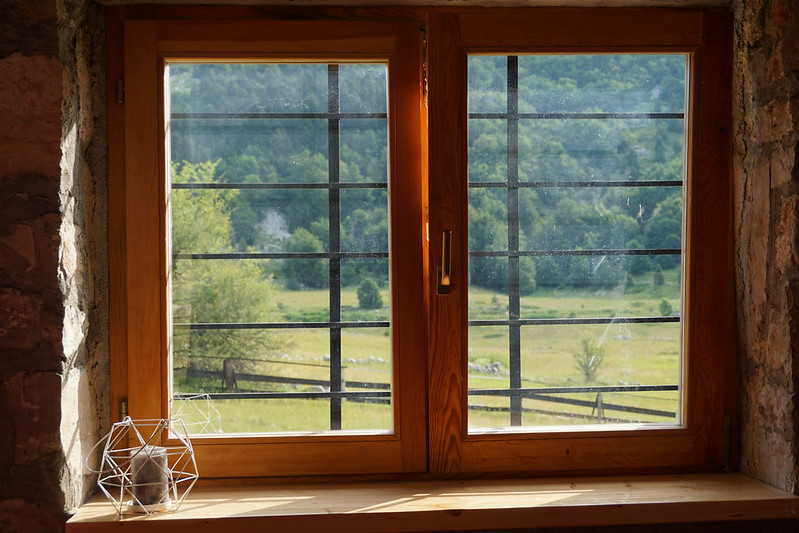
How many hours do you work each week?
This varies a lot. In 2014 and 2015, I worked feverishly to get my new business off the ground, so I’d say I probably averaged 35 – 60 hours per week or even 70 on a really backbreaking week. (Thus launching four books in one year.)
Of course, the ultimate goal has always been to not work so damn hard.
In 2016, a bit burned out, I made this more of a priority, working about half time (maybe 25 hours a week) most of my time in Arizona that winter, then working a bit less (probably 20 hours a week) while road tripping across Canada. In 2017, I committed to keep my working hours low, shooting for about 20 hours per week. So far I’ve been fairly successful.
What’s your work schedule like?
I am most focused, productive, and creative in the mornings, so I usually try to get as much done as possible before lunch (it helps that I’m an early riser, usually up between five and seven). Afternoons are generally for work that doesn’t require as much focus (emails, eBook formatting, things like that) or, on a very productive day, walks, naps, explorations, and reading.
While I was in Arizona, I worked in the mornings and took most afternoons off. While I was road tripping across US and Canada in 2016, I worked two long days per week (Mondays and Thursdays) and took most of the rest off. In 2017, I’ve been mostly working a Monday, Tuesday, Thursday morning schedule with an occasional Wednesday morning thrown in.
That said, my schedule varies greatly. The good news about working for myself, even if I’m working a lot, is that I have control over my schedule. If it’s a gorgeous sunny day, I can take the day off and go hiking. If I’m feeling uninspired, I can shift things around and work on something that doesn’t require as much creativity. And I always try to make time for people, so if I’m in a good conversation, I try not to rush off back to work. I’d rather add an extra working hour into the next day than skip an interesting or important conversation.
How do you get everything done?
Because I have power over my schedule, I also have the power to say no to things, to change my book launch dates (like I did when the Italy guide took longer than anticipated and again when I was ill over the winter and fell behind on my France guide), and to otherwise shift things around. I’ve also made it a priority to reduce my urgent deadline-driven projects, take on more relaxed ongoing work, and to raise my rates so that I don’t have to work so many hours to make ends meet.
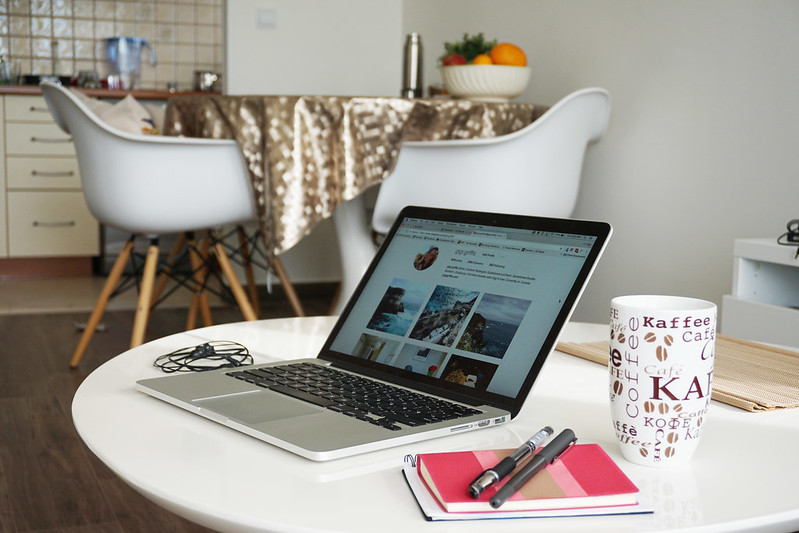
Aren’t you distracted, being in a new place?
Actually, no. I’m energized and inspired by it. Some of my best work happens the first week after I arrive somewhere new.
How do you balance work and exploration on the road? Is it a tough thing to juggle?
For me, the answer is staying longer. When I stay in a place for a month or two or three, I don’t feel like I’m missing out when I have to work. I still have time to see and do the things I want to see and do, but also have time for my work and for plenty of introvert days in between. The only time I feel like I’m missing out is if I travel too fast.
What does your traveling office look like? When looking for a workspace abroad, what do you consider?
I travel with a laptop, a tablet, a mirrorless camera, a handful of cords that connect everything, a notebook, a backup hard drive, a USB drive, and pens. This pretty much makes up my mobile office, which I can set up on anything from my lap to a coffee table to a kitchen counter to a coffee shop table.
I work best in sunny places with good views, so I try to choose apartments with sunny rooms and big windows when I can. It’s not always possible and if the room is rather dim, you’ll find me at coffee shops more often than usual.
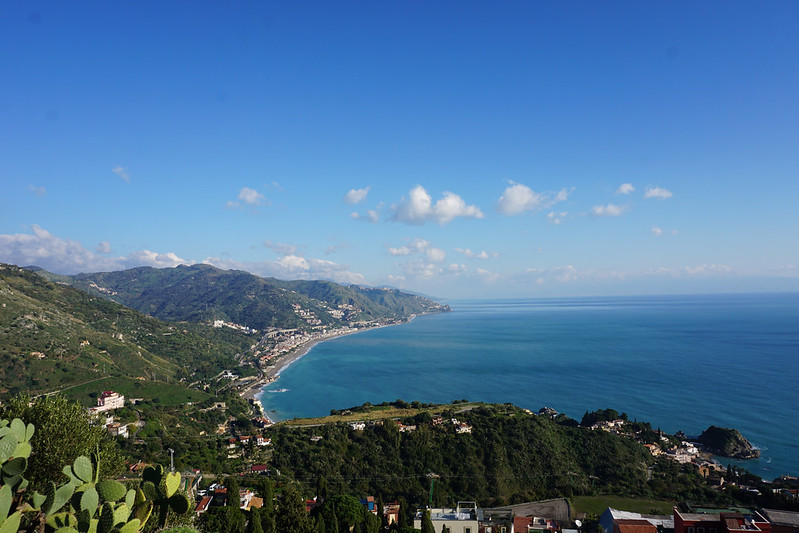
SOLO FEMALE TRAVEL Q&A
Don’t you ever get lonely?
I’m no longer traveling solo and that makes a big difference. But for the 3.5 years that I was on my own, my answer was this: Certainly I got lonely sometimes. But I was much lonelier living full-time in Denver than I have been on the road. Because loneliness isn’t about staying in one place. It’s about connection.
Is it safe for women to travel alone?
Absolutely. Most of the places I travel in (Switzerland, Belgium, Germany, even Mexico and Costa Rica) have lower violent crime rates than major US cities (Miami, Chicago). But even if I was a little less safe traveling than staying at home? I’d totally do it anyway. Because seeing the world, opening my worldview up wider and wider, hiking the Swiss Alps, cycling across France…they’re all worth a little risk.
That said, there are definitely parts of the world that I wouldn’t recommend for a solo woman…
Is there anywhere you wouldn’t travel as a woman alone?
The only place I’ve felt genuinely unsafe in my own travels so far was Colombia. Yes, it’s come a long way since its (recent) major drug trafficking days. Yes, murders are down by a lot. But what no one tells you is that street crime in cities like Medellin (popular with travelers) is actually up. And harassment for women is constant. Getting catcalled? That’s a good day in Colombia. A bad day might be being pulled down the street in broad daylight by your ponytail, being followed home by an ominous motorcyclist, being screamed at while drinking your coffee, or having strange men rub themselves on you while waiting in line for gondola tickets.
I also, personally, don’t have any interest in traveling places like Saudi Arabia where women are second-class citizens. My travels in Morocco were soundly frustrating for this very reason.
I’m also (obviously) avoiding countries actively in conflict and I do take the advice and warnings of other well-traveled solo ladies seriously.

Is there anywhere you particularly recommend for solo lady travelers?
So much of the world is safe and welcoming, really. But if you are particularly nervous, the places I’ve felt absolutely safest have been Slovenia, Belgium (particularly Ghent and Bruges), the Swiss Alps (which is the safest I’ve felt as a solo hiker due to their exceptionally well maintained trails, good signage, and other friendly hikers on the trails), the French countryside, Croatia’s Dalmatian Coast, and Germany’s Black Forest area. Most big European cities are also pretty safe, but like any big city, it’s important to know which neighborhoods have low crime and which don’t.
TRAVEL & SAFETY Q&A
Are you afraid to travel, especially with all the craziness going on in the world right now?
The short answer is no. The longer answer is that the places I travel are actually much safer than staying in the US. The US actually has a much higher homicide rate than other similarly developed countries. In fact, it’s three or four times more than any of the Western European countries.
The problem is perception. We’re told that the world isn’t safe. The media reports on the sensational, not the ordinary, and so terrorism and gun violence take the spotlight. Border towns are the focus of Mexico coverage, not lovely little beach towns like Sayulita. The one woman who disappeared while traveling solo in Turkey gets all the coverage, not the hundreds of thousands who made it home just fine. This is just perception. It’s just news coverage. It’s not an accurate representation of the safety of the world.
The reality is that quite a lot of the world is safe. And, in fact, much safer than the US.
The reality is that wherever you are, you are more likely to be fatally struck by lightning than to die in a terrorist attack. You’re actually more likely to be crushed to death by your own television than killed by a terrorist.
The reality is that the world is still safer than you think, as long as you stay out of obviously dangerous places like active war zones and don’t do obviously scary stuff like renting a run-down place in the bad part of town somewhere.
How do you help worried friends and family understand your desire to travel? How do you help them calm their own fears?
I actually wrote a whole post on this.

GENERAL TRAVEL & PLANNING Q&A
What are your favorite places?
I love a lot of different places for a lot of different reasons. My favorite landscapes are in and around Lauterbrunnen, Switzerland, Slovenia’s Soca Valley (and Lake Bled), and the unique Okavongo Delta in Botswana, Africa.
My favorite places for food are Italy (particularly Modena, Rome, and Tuscany), France (particularly Paris), Zimbabwe (Victoria Falls), New York City, and Costa Rica. I also love France and Italy for wine.
My favorite cities and towns in terms of sheer beauty include Bruges, Belgium; Thun, Switzerland; and Assisi, Italy. (Cuzco, Peru, and the Montmartre neighborhood in Paris are also pretty damn beautiful.)
My favorite place in terms of warm, welcoming communities of people is Ghent, Belgium.

What are your least favorite places?
Colombia because of the horrifying harassment and culture of acceptance I experienced there. Morocco, because the gender inequality grated on me. And (I’m sorry to say) Spain. I keep wanting to like Spain, especially since I speak some of the language and because so many people love it wholeheartedly, but every time I go I’m either disappointed or downright unhappy, especially in Catalunya, which seems to have the least friendly people in Europe.
The UK and Canada are two other spots I’m unlikely to return to, but only because I was treated so poorly by their border officials, not because I actually dislike the places themselves.
I’m also bothered by much of the US, since there’s a certain sameness to it. Same stores. Same culture. Same constant sound of car traffic. And I really dislike all the billboards and advertisements that are constantly bombarding me there. Not to mention the politics, high priced healthcare, and inability to really get around without a car.
Is there anywhere you don’t want to travel?
Anywhere where women and dogs are less-than-welcome. Also, despite the hype, I’ve never felt a draw to India.
Where are you dying to travel to?
Norway’s fjords, Slovakia, and the Czech Republic. I’m also longing to get back to France for another foodie adventure and to explore more of Slovenia.

Where would you recommend for first-time solo travelers or nomads?
Sayulita, Mexico would be an excellent starting point. It’s a small town (and, thus, perfectly manageable and not overwhelming) full of surfing, yoga, and tacos. Good Wi-Fi is available if you’re working from the road. And it’s a vibrant, international little community of people from all over the world, usually staying for at least a month or two. English is widely spoken. And you’re just 45 minutes from an airport.
Ghent, Belgium would also be a great place to start. The people are friendly. English is widely spoken. The food is fantastic. It’s super cheap for Europe, while also managing to be historic and interesting and way artsy. And gorgeous Bruges and hip Antwerp are less than half an hour by train. Brussels (and its airport) are just an hour.
Split, Croatia is another great choice. It’s very affordable for Europe, sunny and warm most of the year and full of incredibly friendly people who often speak English (especially the younger generation) and things to do.
Ljubljana, Slovenia is a favorite we’ll be heading back to ourselves soon. It’s very affordable (I spent less than $1,000 living there for two weeks) with gorgeous summer weather, super easy access to outdoors scenery and activities (Lake Bled and Soca Valley being at the top of my list), English-speaking locals, very good food, cool summer festivals, and very friendly people.
Finally, I’ll give another plug to Lauterbrunnen, Switzerland where you’ll find gorgeous landscapes, good Wi-Fi, and tons of travelers from all over the world (assuming you’re there in summer). It’s small, manageable, and well-connected to everything by train. Just make sure to budget a bit more, as this area isn’t cheap.

Are you ever going to settle down? And will it be in the US?
One of the things I’ve learned about myself in the last few years is that I am at my absolute best when I’m living in the moment. And so that’s how I try to live. Do I plan for the future? Sure. I save money. I plan on investing. I book things sometimes as much as six months in advance. But do I know if I’ll ever settle down? Nope. No idea.
And that’s the beauty of the lifestyle I’m living. It’s 100% flexible. If I feel like nesting, I can stop and nest. If I feel like going on, I can go on. Right now, I feel like traveling. Who’s to say how I’ll feel in two years or 10 years or 30 years?
And as for the second half of your question…I can give you an answer I feel more certain about: No. I have no intention of coming back to the US long-term. I feel safer and more at home abroad.
What’s the worst thing that’s happened to you on the road?
Getting detained by British immigration was one of the most traumatic experiences of my life (and the only time in the last five years I truly thought about giving up). A close second was when I got super sick and ended up in the hospital on Malta and then spent over a year trying to get fully back on my feet.

How do you choose where to travel next?
It varies. Sometimes I choose to go somewhere because a friend lives there or it was recommended to me by a traveler I trust. Sometimes I see a photo essay or Flickr photo online and pick my destination that way (it’s how I decided to go to Ljubljana the first time). Sometimes I’m invited to an event. Sometimes the place is just nearby or on the way to somewhere else. And sometimes I’ve just been pining for a place for a long time with no discernible reason.
In any case, I usually factor in:
How close the destination is to my current location (when possible, I like to save time, money, and fuel by clustering my destinations);
How expensive it will be and whether it fits into my current budget;
How cheap plane or train tickets are (if I’ve been wanting to visit Greece, Montenegro, and Albania and the Montenegro plane ticket is $200 less, I’ll likely choose that as a place to start, knowing I can hit the other two later);
How beautiful it is (for me, beauty, particularly of the natural or small-town variety, is priority; this is one of the reasons I rarely spend time in big cities) as determined by online photo searches;
And climate (I don’t want to go to Greece in the height of summer when it’ll be too hot to enjoy it or Sweden in February when it’ll be too cold to explore).
I also frequently go with my gut.
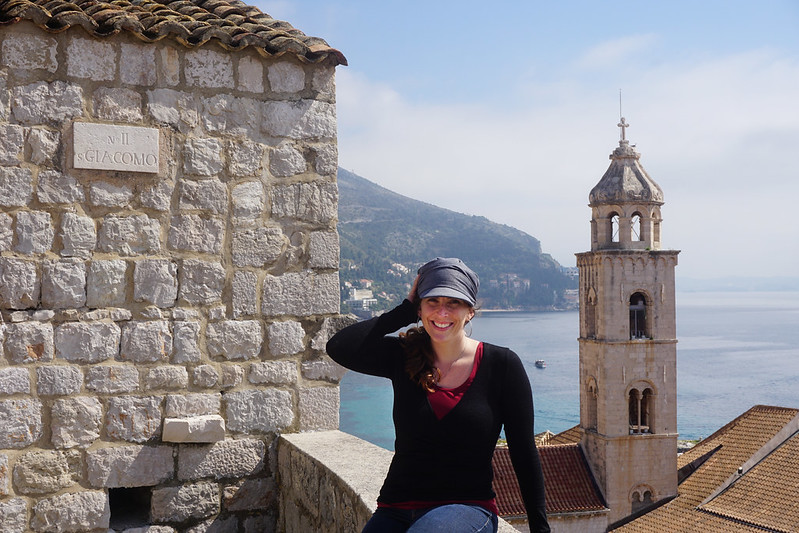
How far ahead do you plan?
It varies. I’ve booked as much as six months at a time and as little as one. Generally, I book ahead more during high season (summer in western Europe, for instance) to make sure I get a reasonable deal. And I rarely ever fly completely by the seat of my pants because that’s tougher to do with a dog (you need paperwork when crossing borders and need to find dog-friendly housing).
How long do you stay in each place?
Again, this varies. The longest so far has been my almost-year in Switzerland. The shortest was about three hours in Zagreb, Croatia. The average is probably somewhere around 1 – 2 months right now.
Do you ever get homesick?
Yes! But not for the place you’d think. I never miss the US, but I frequently and wholeheartedly feel homesick for Europe whenever I’m not here.
I do, of course, miss friends back in the states. But they’re scattered all over the country, so there’s no one place to be homesick for in the US.
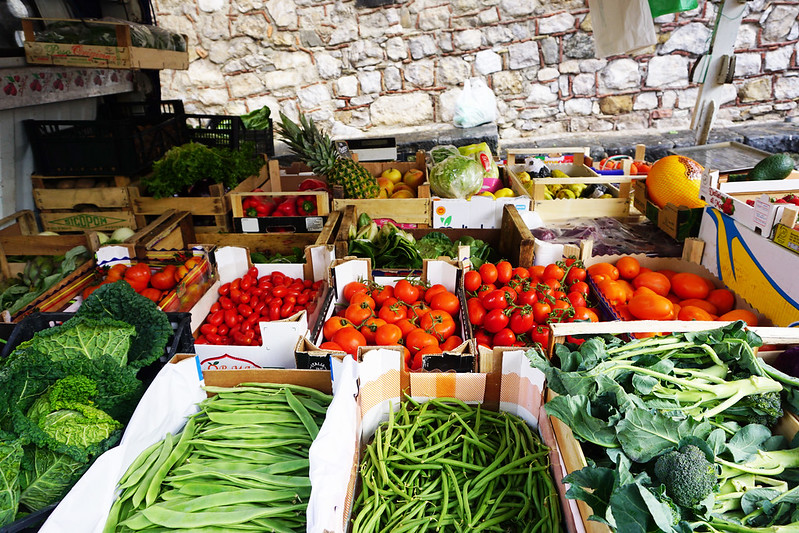
What do you do all day?
It depends on the day, but my day-to-day life includes plenty of work (writing, updating websites, developing messaging strategies) and lots of the mundane things we all have to navigate (doing laundry, making meals, going to the grocery store, going to the dentist, bathing the dog).
I also spend a good amount of time reading, both because I love to read and because I’m an introvert and need quiet time to recharge, and hiking/walking because I love the movement and like taking in new scenery on foot. When I have a bike, I spend plenty of time cycling as well.
Sometimes I actually document a day in my life on the road. You can find those here.
Do you have to re-purchase essentials everywhere you go? Are you constantly buying new pots and pans?
Nope. I rent furnished places, so they generally have all the essentials. Very occasionally (maybe a couple times a year) something important is missing and I have to go on a quest for a bread knife or can opener. But generally everything is provided.
Do you ever have a “meh” reaction to what you see? Are you getting harder to please now that you’ve seen and done so much?
Yes. I’m a massive nature snob and things that everyone else seems to love (like the Glacier Express) feel anti-climactic to me sometimes, especially when I compare it to the much-cheaper Swiss routes (Geneva to Murren, I’m looking at you) with better panoramas.
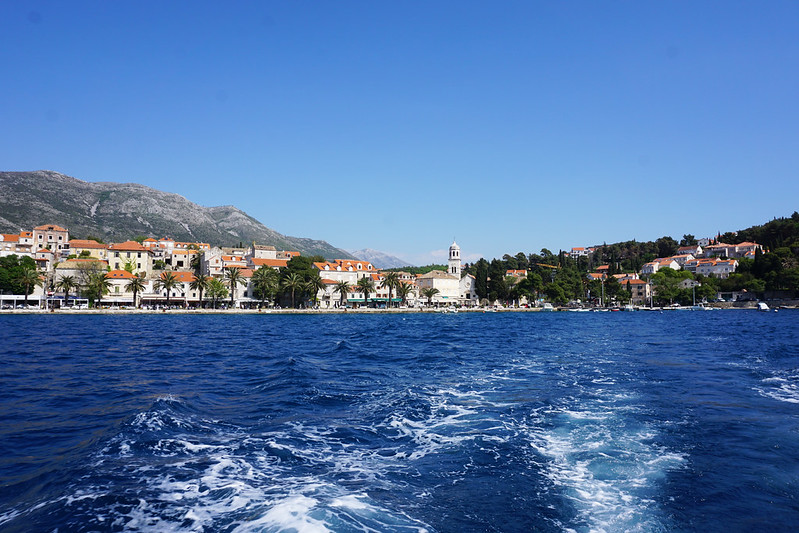
How do you navigate length of stay requirements? How did you get your Swiss residency?
In Europe, the system is simple (if frustrating). You can stay in the Schengen Zone (which is most of mainland western Europe) for up to 90 days; then you have to leave for 90 days. Before I had Swiss residency, this meant I would spend 90 days or less in the borderless portion of mainland Europe and then head somewhere like the Ireland, Croatia, or Mexico (all outside the Schengen). Then I’d come back in.
When it comes to navigating the requirements for other countries, the best thing to do is always research online before you go. Some countries let you stay 90 days without a visa. Some are just one month. Some are six months (like Mexico). And all of it depends on your nationality. Know before you go and plan accordingly.
And if you want to stay longer? You’ll need to apply for a longer stay visa/residency. For many places, you’ll need to apply for the visa before you leave your home country, so make sure to research ahead of time.
In my case, when I wanted to stay in Switzerland for a year (which turned into two) to write my book, I went through a lengthy residency process and was eventually granted a residence card that gives me the right to stay in Switzerland beyond the normal 90-day tourist visa.

Could someone be a nomad part-time or is this an all-or-nothing lifestyle choice?
Of course! There are very few all-or-nothing choices in life. Full-time travel looks different for different people. I know one couple who consider themselves nomads (and indeed travel faster and more than I do), but still own a home in Utah that they return to from time to time. Another couple I know are expats in Germany, but frequently take anywhere from two weeks to two months to travel. And then there’s me…with a substantial amount of travel, but also a stint as a true expat in Switzerland. Nomading is what you make it.
Do you think everyone should go nomadic at some point in their lives?
The short answer is no. Being untethered, living a minimalist lifestyle, traveling the world, working from “home”…for some people, that’s the dream. For others, it sounds more like a nightmare. I am a firm believer that what you want is good enough. Your dream doesn’t have to be my dream. My dream doesn’t have to be yours.
I have friends who are happiest when they are circling the globe, others who feel best being stable expats somewhere outside their home country, still others who can’t imagine living anywhere but where they grew up. And all of those options are good and worthwhile. None more than the others.
Now, I do wish everyone had the chance to travel. Because all those things people say travel does–opening you up to the world, diminishing prejudices, making you braver and more confident in your abilities, offering up new perspectives–they’re true. And I think getting outside your own culture is a valuable thing. But nomadic life and long-term travel? Well, they’re not everyone’s dreams and, frankly, they just aren’t feasible for everyone and that’s okay too. If you wish you could travel full-time, but have chosen instead to stay put, at least for the moment, and care for a sick loved one or pay off your debts or otherwise live a responsible, loving life, I applaud you. Travel, long or short-term, is wonderful, but so is caring for those who need you and living a life that doesn’t unduly burden others.
Has traveling made you feel disconnected with your friends as your lives diverge so greatly?
My closest friends are similar in both interests and mindset. Sure, most of them don’t travel full-time, but they do live unconventional lives and they do love to travel. We’ve all always been this way, which probably is what brought us together. And so with my closest friends, I’ve stayed very close. We Skype and email often and I make an effort to see them when I can.
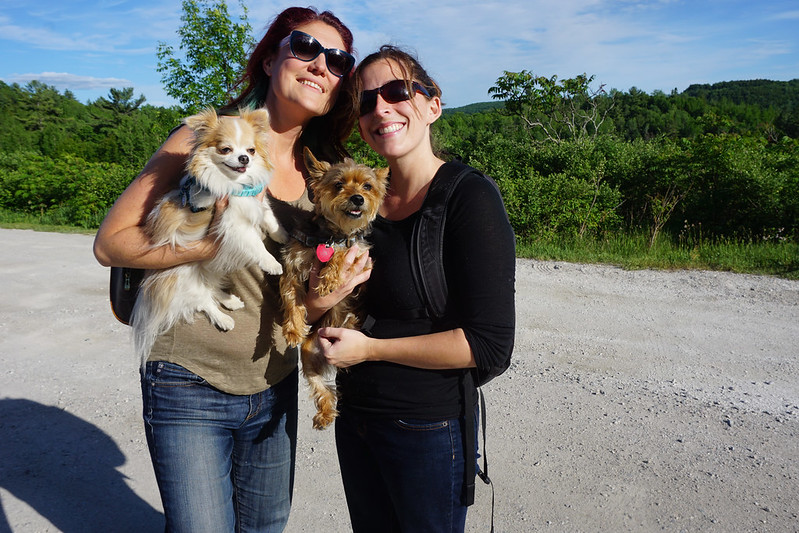
Hiking with Sonja and Montecristo in Ottawa, Canada.
What do you like most about full-time travel?
I love change. I’m so energized and inspired by new places, new people, new landscapes, smells, foods, sounds. And every time I move somewhere new I feel like I get to reinvent myself.
Equally as important, I love the freedom of my lifestyle. I can fit my whole life into a backpack. I can change my life in less than a month. I can go. I can stay. I can chase the sunshine. I can invest in community. I control my work schedule. I control my travel schedule. I prioritize my values (people, connection, learning, nature). I’m free.
What do you like least?
Paperwork and immigration rules. The world should be a whole lot more open. I feel sick and sad when I see the political pressure for tighter borders and less welcome happening in many countries.
Do you buy souvenirs? If so, what do you do with them?
I don’t really buy souvenirs, but I do often replace my possessions along the way, so almost every skirt or bag or mascara bottle has a story and a place attached to it. I also take tons and tons of photos.
Wait…You travel with your dog? How does that work?
Here’s a separate Q&A on that topic.
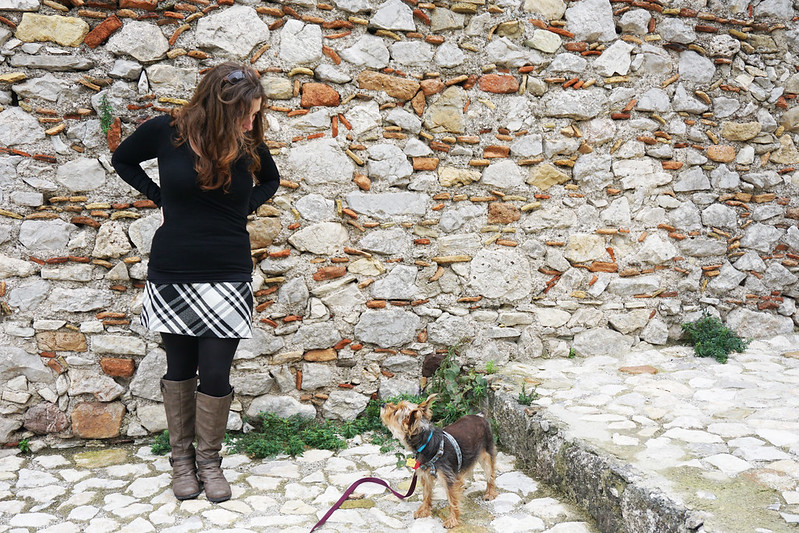
SANITY, LOVE, & RELATIONSHIPS Q&A
How do you manage when you feel ungrounded?
The short answer? I stop. I stay longer. I go somewhere familiar or somewhere I have friends. The beauty of the nomadic life is that I haven’t committed myself to anything. If I feel lost or lonely, I can always go to Berlin or Paris or Arizona or Pennsylvania (all places I have good friends) for a month or two or apply for a visa and stay in Switzerland for a year. The key is recognizing when you’re starting to feel lost or burned out and giving yourself permission to stop for however long you need to.
How do you help yourself feel grounded in a new place?
I unpack my bags (living out of a bag is a sure-fire way to feel unsettled). I buy groceries and seek out farmers markets. I frequent the same coffee shop until the owner recognizes me. I rent apartments in neighborhoods with locals instead of living out of hotels or hostels. I go for long walks in my new neighborhood. I set up little routines that make me feel settled, like tea in the morning or a glass of wine on my terrace a few evenings a week.
And, of course, Luna is a tremendous help. Dogs require some small amount of routine and have a way of making you feel at home anywhere. No matter how jet-lagged or uninspired you feel, you still have to walk them, feed them, and pay attention to them. Also, dogs are like a magnet for people. No matter where I go, everyone wants to talk to me and everyone assumes I’m staying awhile, that I’m part of their community.

What about relationships on the road?
For the most part, my first 3.5 years on the road were spent solo. But don’t blame my singleness on travel; I was single for another 3+ years while living in Denver before hitting the road. I had some lovely dates and mini romances along the way, but I was mostly single and, honestly, not always thrilled about it.
That all changed in late 2015. I went to Colombia and despite having a mostly terrifying experience of the country, I did meet Chad, who then followed me to Arizona, chased me around till I fell in love with him, and then joined me for my cross-US-then-cross-Canada road trip. We’ve been officially together since February 2016 and started traveling together full-time in May 2016.
If you’re looking for relationship travel advice, I’ll point you toward an interview with a couple who have been traveling together far longer than Chad and I: Advice from a World-Traveling Couple.


Do you still like each other, even though you are constantly together?
Of course! I think the key here is that we are both independent travelers and were both traveling before we met. This means neither one of us is just tagging along with the other. If one wants to do something and the other doesn’t, the first person can go off on their own. We are together a lot, but because we want to be together, not because we have to be.
The second key is communication. When you’re constantly together, you have to be willing to say something if you need alone time or feel off or are upset about something. Now, as any therapist would tell you, when you are communicating something like that, make it about your needs. Saying “I’m feeling upset and wouldn’t mind some alone time for a bit” rather than “you’re upsetting me” makes a big difference.
Then, of course, there’s the fact that we’re just similar enough people that we get along. We’re both introverts. We both get exhausted easily by late nights and big groups, but we both also like people and don’t want to be total hermits. We have the same primary love language. We both care about eating well as much as possible, but neither of us have extreme dietary restrictions. We like the same type of travel. We both love the outdoors, but also like spas and fancy dinners and theater. And there’s a lot of overlap in our world views.
How do you make friends on the road?
I actually find it really easy to meet people and make friends on the road. Firstly because other travelers are usually up for a conversation. Secondly, because telling someone you travel full-time is a great ice-breaker and often leads to more conversations. And thirdly, because travel forces me to get out of the house and go exploring, which means I meet more people.
As for finding people to meet up with, I suggest couchsurfing.org. (I don’t actually couchsurf, but it’s a great way to connect with like-minded people and grab a coffee, go to an event, head out on a hike, etc.) Meetup.com, Internations, NomadList forms and chat, and Facebook groups are also great resources.
Do you find that your new friends are mostly transient…and how do you deal with that?
Actually, the vast majority of my friends have home bases of some kind. The friends I made in Belgium still live in Belgium. The friends I made in Germany still live in Germany. I’ve only met a handful of other full-time travelers. And so we stay connected via Skype and email and Facebook and by meeting up when we can.
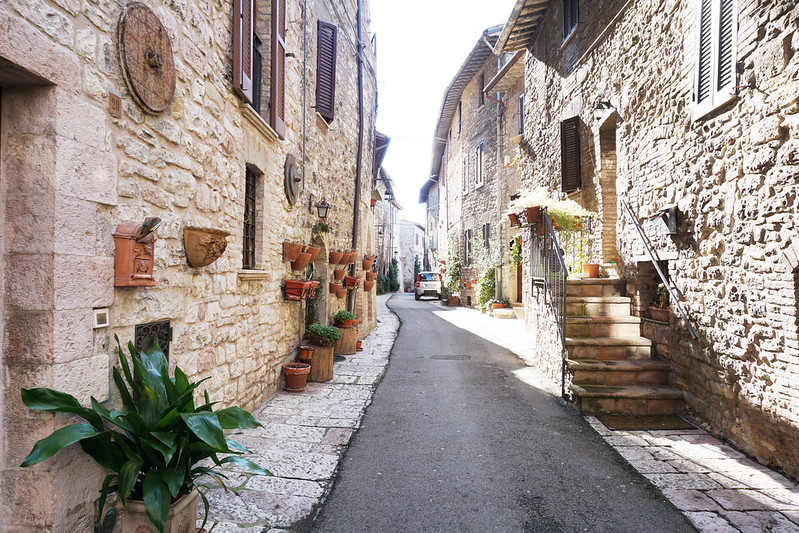
HEALTH & MENTAL HEALTH Q&A
You travel with anxiety, right? What’s that like?
Yes, I do. It’s tough, but manageable. Here’s a long piece I wrote about it.
You also talk about depression on the road…what’s that about?
I’ve struggled with depression for years, but I try my best not to let it keep me from experiencing life. And, in general, I find that travel helps. it.
What about health insurance?
After a lifetime of bad experiences with health insurance companies, I’ve finally found one I love: GeoBlue. For $160 per month, I’m covered anywhere in the world except the US and they are amazing at setting up direct billing with whatever doctor I need to see (they’ve done this for me in both Rome and Dubrovnik). They’ve removed all the hassle and the fear I always have about things not being covered. I recommend them highly.
What do nomads who need prescription medication do?
Here are several attempts at an answer.
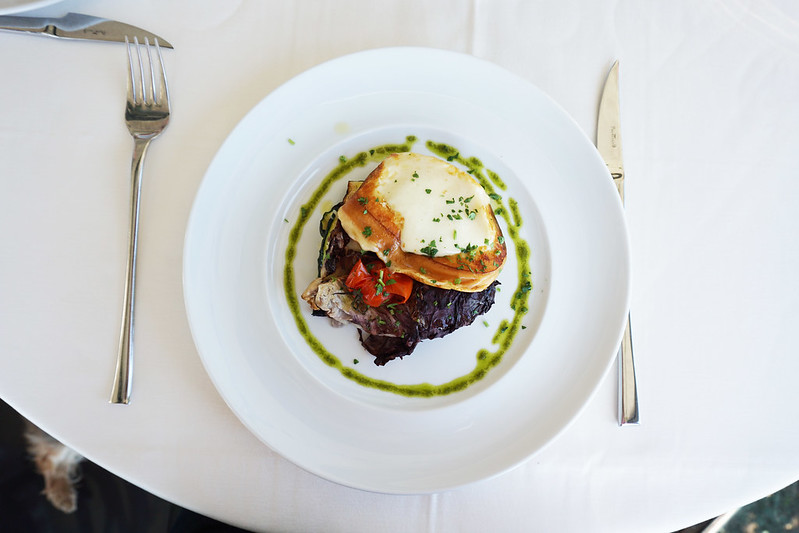
PACKING Q&A
What kind of bag(s) do you use?
Right now I’m carrying an Osprey 65-liter AG pack, which was kindly given to me in exchange for a review here on the blog back in 2016, and a small everyday backpack by Northface. I’m also traveling with a folding bicycle, which I carry in a canvas bag.
What’s on your packing list?
It changes a lot based on where I am, what time of year it is, and how I shift over time, but here’s the latest.
What can you simply not live without?
Well, the essentials (the two things I would rescue in a fire) are my laptop and Luna. But nearly everything I carry feels essential to me either in terms of actual necessity (toothpaste, deodorant, etc.) and things that keep my quality of life at a level I can live with (mascara, nice dresses, iPod, good tea).
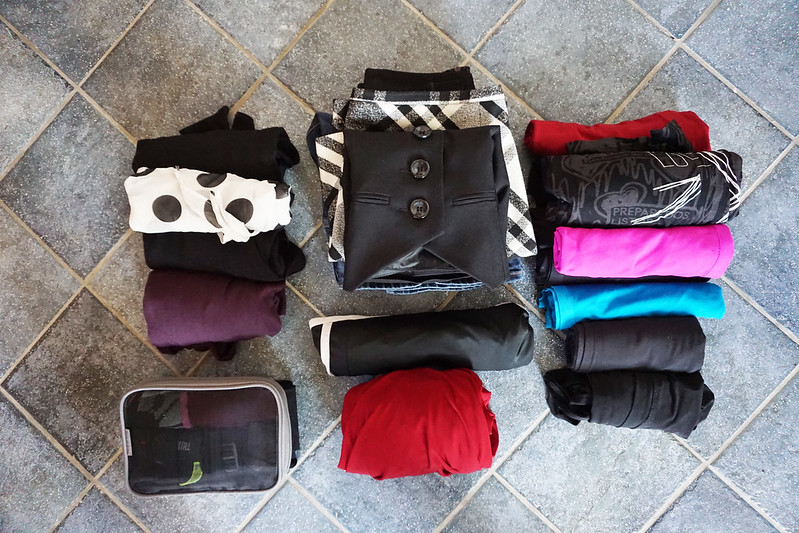
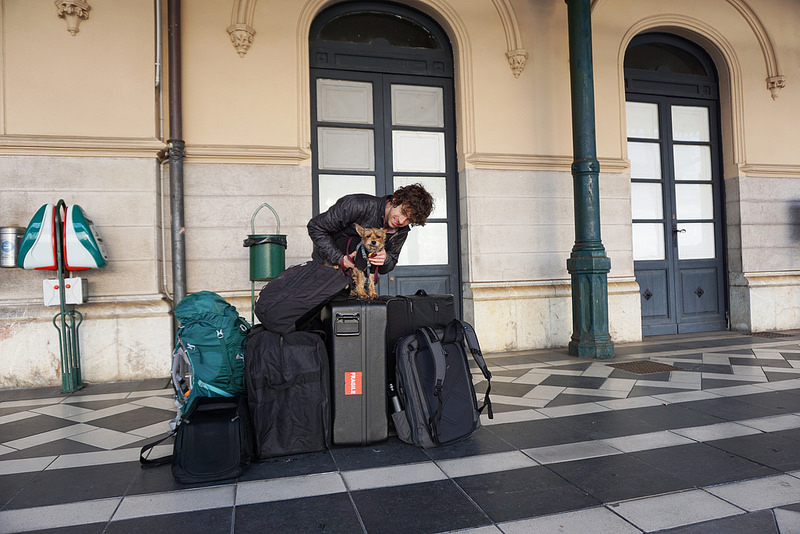
BLOGGING & TRAVEL WRITING Q&A
How did you become a travel writer?
I became a writer like this. And I landed my first (and second and third) travel writing gigs like this.
Any tips for someone who wants to become a writer?
Yep. Start here. Also: do interesting stuff. The more experiences you have, the more stories you have to tell.
How do travel bloggers make money?
Tons of very different ways, but mostly not from blogging itself. Here are some.
Do you take press trips and freebies? I know there’s some controversy about all that. How do you feel about it?
I don’t do press trips, but I do sometimes take freebies or discounts. This allows me to have a more diverse, rich experience of a place so that I can write about it from a more informed perspective. When I do take freebies or discounts, I do my best to make it clear here on the blog that I’ve done so, and I’m also committed to always telling you the truth about places I stay and things I try.

OTHER Q&A
What do you miss the most? Is there anything that would make you move “home” again?
At this point, I doubt if there’s anything that could entice me back to the states full-time, but when in Europe I do miss TexMex pretty much all the time. The Mexican food in Europe is atrocious. I also miss good chapstick and non-greasy sunscreen.
Did I somehow miss your question? Ask it in the comments!
Comments
-
-
LT
Love love love your life and this post and if I had your talent I’d have plenty of hope I could live like you. For now, I have to figure out how I can live a nomadic life and do the things people will pay me for.
-
Dayna
Hello, thanks for all the good information, and well done on the savvy long-term travels. My dog is much larger, so it is a very different journey… wondering if you have a Charles Schwab referral code? They are asking for one, so I thought I would ask just in case. I had needed to get with a bank without international fees, so thank you for that. I use Capital One as a credit card, no fees, though they are not the best if you run into any troubles (I’m looking at you, rental car extortion Ireland….).
I have USI travel insurance (covers medical emergencies, not regular health visits, but also travel and expatriation etc). And I have to travel with my tea, Traditional Medicinals, which you can actually get shipped reasonably from online suppliers in US like lucky vitamin and iherb (chapstick and sunscreen too), and get frequent flier miles at the same time. FYI. You just need to have an address to ship to, which is the hardest part for me! Mexican food was the first thing I missed 🙂 All the best.

Kira
Love this monster post! I would love to see the “places recommended” grow into another post. The only questions I have outstanding would be…where’s the best place to freelance if you’d like to live well and save up for awhile? And, do you ever find working from a laptop painful? (I have a full standing desk, huge monitor, elbow stand, ergo-mouse, etc…)
Thanks Gigi!